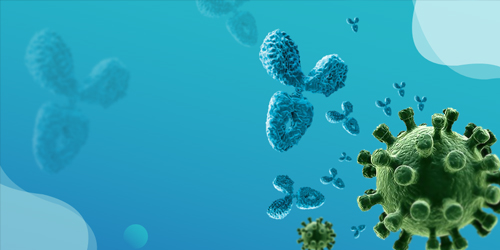Immunopathology Complement Activation Complement Molecular Mechanisms Related Products Hot Services Q&A Resources
Are you currently facing challenges in developing effective, targeted therapies for severe infectious diseases like meningococcal meningitis, particularly those involving complex complement dysregulation? Our Creative Biolabs’ Complement Therapeutics Program helps you accelerate the development of highly effective, precision-targeted interventions, and improve patient outcomes through our advanced understanding of complement pathway intricacies, innovative drug design, and robust preclinical validation platforms.
Immunopathology Features
Meningococcal meningitis is a serious bacterial infection disease with high mortality rate caused by the bacterium Neisseria meningitidis (also termed meningococcus). Although it is a vaccine-preventable disease, the meningococcal infection disease remains a major cause of morbidity and mortality all over the world. In most instances, the meningococcus is a harmless colonizer of the human nasopharynx, but in some very small percentage of individuals it can enter into bloodstream and invade the entire body especially limbs and brain which thereafter resulting serious illness. The incidence of this disease is more likely to occur in infants under 1 year of age and in adolescents and young adults between the ages of 15 and 25 years. Meningococcal disease is contagious which could be transmitted via saliva.

Fig. 1 Distribution of meningococcal meningitis in the African meningitis belt reveals regional patterns and hotspots.1
Pathogenesis of Meningococcal Meningitis
Despite abundant efforts have been put into the disease, the underlying pathogenesis of meningococcal infection disease is not fully understood. In meningitis patients, meningococcus attacks meninges, the lining between the brain and skull. The fluid with meningococci from the meninges can pass into the spinal cord which thereafter leads to corresponding clinical manifestations including a sudden onset of headache, fever, rashes, and stiffness of the neck, sometimes accompanied by nausea, vomiting, photophobia, and an altered mental status.
And the meninges may begin to swell which have a serious effect on the central nervous system. The sepsis type of infection may result in a serious blood poisoning termed meningococcal sepsis that leads to systemic effects and will be much more deadly. Even management with appropriate treatment in infected patients, the case-fatality rate remains high. And many survivors of this disease may suffer certain damage of the body like losing a limb or their hearing or permanent damage of their brain.
Related Complement Activation Pathway
The pathogenesis of Meningococcal Meningitis involves a complex interplay between N. meningitidis and the host's complement system. While the complement system is a crucial first line of defense, N. meningitidis has evolved sophisticated mechanisms to evade complement-mediated killing, leading to uncontrolled systemic activation that contributes to severe disease.
Table 1 Complement activation pathways.
|
Complement Activation Pathways
|
Meningococcal Meningitis Pathogenesis
|
|
Classical Pathway
|
The classical pathway is generally activated by antibodies binding antigens on N. meningitidis, yet in early infection stages or non-immune individuals, antibody scarcity limits this defense. C-reactive protein (CRP) also instigates this pathway by binding bacterial surface components like LPS. N. meningitidis employs its capsular polysaccharide, outer membrane proteins, and NalP protease to impede classical pathway activation, reducing C3b deposition and hindering immune response, while effective activation in later infection stages or vaccinated individuals promotes complement activation, releasing anaphylatoxins and forming the MAC, potentially damaging host tissues if not properly regulated.
|
|
Alternative Pathway
|
The alternative pathway of complement activation remains in low-level activity but becomes directly activated on microbial surfaces like N. meningitides lipooligosaccharide (LOS) and outer membrane proteins, enabling C3b deposition and creating an amplification loop for the classical or lectin pathways, rapidly increasing C3b and C5 convertase formation. N. meningitidis exploits factors like Factor H-binding protein, outer membrane porins, and LOS sialylation to evade complement attack, yet in severe meningococcal disease, high bacterial loads and component release can overwhelm regulation, causing surplus C3a and C5a production, promoting inflammation, vascular damage, and coagulation, ultimately resulting in septic shock and multi-organ failure, which is particularly problematic in individuals deficient in alternative pathway components.
|
|
Lectin Pathway
|
The lectin pathway is triggered when pattern recognition molecules such as MBL or ficolins bind to specific carbohydrates like mannose and N-acetylglucosamine on N. meningitidis, targeting proteins and associating with MASPs to cleave C4 and C2, forming the C4b2a. N. meningitidis can alter its surface glycans and sialylate LOS to evade MBL binding, dampening lectin pathway activation, while excessive activation leads to inflammatory responses that contribute to tissue damage, with both MBL deficiency and uncontrolled activation impacting susceptibility and disease severity.
|
Molecular Mechanisms of Complement-Mediated
Table 2 Molecular mechanisms of complement-mediated.
|
Key Complement Components
|
Functions
|
|
C1q, C1r, C1s (C1 complex)
|
Be activated by N. meningitidis (LPS, CRP-bound). Contributes to overall complement activation, leading to inflammation.
|
|
MBL, Ficolins
|
Binds to N. meningitidis surface components. Contributes to initial complement activation and subsequent inflammatory response.
|
|
C3
|
Be directly activated by N. meningitidis surfaces. Forms C3 convertase, leading to massive amplification of activation.
|
|
Complement Factor B
|
Binds to C3b on the bacterial surface, forming the C3bBb complex which amplifies complement activation.
|
|
Complement Factor D
|
Cleaves Factor B, essential for alternative pathway C3 convertase formation.
|
|
C3a
|
Binds to C3aR on immune cells, promoting degranulation, histamine release, and vasodilation; contributes to edema and inflammation.
|
|
C5a
|
Binds to C5aR on immune and endothelial cells; drives strong neutrophil chemotaxis, cytokine release, increased vascular permeability, and endothelial activation, leading to septic shock and multi-organ damage.
|
|
MAC
|
In meningococcal meningitis, excessive MAC formation on host cells causes direct cell lysis or sublytic damage, contributing to vascular leakage, thrombosis, blood-brain barrier disruption, and tissue injury.
|
The complement therapy now earns more and more attention in the treatment of meningococcal meningitis. Creative Biolabs is honored to guide our clients’ drug development research in meningococcal meningitis based on our advanced Complement Therapeutics Platform. Please feel free to contact us for detailed information.
Related Hot Products
Our all-encompassing complement platform provides a diverse and economical range of complement-related products. We invite you to contact us.
Table 3 Featured products.
Related Hot Services
Table 4 Complement test services for SS-related complement studies.
Resources
Reference
1. From Wikipedia: By Ninjatacoshell - Own work, CC BY-SA 3.0, https://commons.wikimedia.org/wiki/File:Meningococcal_Meningitis_Range.svg
For Research Use Only.
Related Sections:




